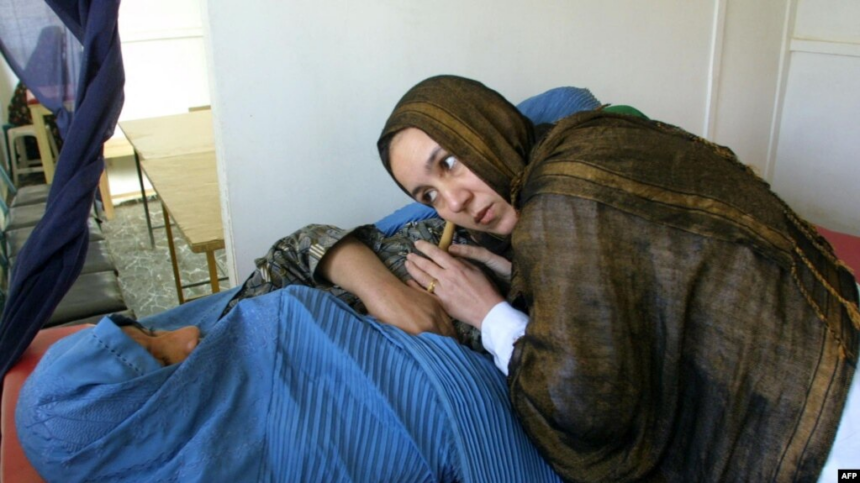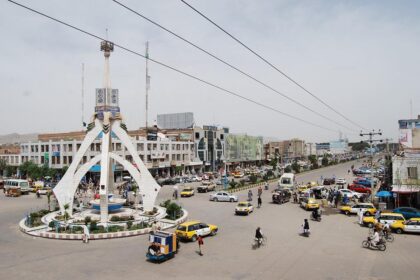RASC News Agency: As international humanitarian assistance continues to wither under Taliban mismanagement and restrictions, women in Afghanistan’s southern Zabul province are facing a silent catastrophe. In several districts, residents say nearly all healthcare services particularly maternity and emergency care have vanished, leaving pregnant women to give birth in their homes with the help of untrained midwives and without the most basic medical support.
Local women told RASC that since the Taliban’s takeover and the subsequent withdrawal of international aid, nearly every health facility in their area has closed. “There are no clinics, no doctors, no medicine,” said a woman from Shah Joy district. “When we go into labor, we give birth at home. If the midwife can’t save us, the mother or the child dies.”
The once-functioning rural clinics that previously provided life-saving maternal and child healthcare now stand deserted symbols of the collapse of a public health system that once depended on international partnerships. Under Taliban rule, the suspension of aid programs, combined with the regime’s sweeping ban on women working in non-governmental and humanitarian organizations, has created a deadly void in access to healthcare.
Women across Zabul describe their daily reality as one of fear, isolation, and neglect. “After giving birth, many of us get sick,” one mother told RASC. “We go to the midwife, but she has no medicine, no tools, and no support. We are left to suffer until our bodies heal or until they give up.”
Even beyond childbirth, women say their health crisis deepens with every passing month. Rates of malnutrition, anemia, and infections are rising sharply, while vaccination for infants has nearly halted. The absence of prenatal and postnatal care means countless preventable deaths go unrecorded. In some districts, entire families report losing mothers during labor, and babies in their first weeks of life.
Before the Taliban’s return to power in August 2021, Zabul’s rural health network though limited benefited from international assistance that funded clinics, paid healthcare workers, and supplied essential medicines. That fragile system has now collapsed. Doctors and midwives have fled or been barred from work, and medical supplies have dried up. What remains is a population of women and children abandoned to chance and prayer.
Local sources confirmed to RASC that more than 70 percent of health centers in Zabul’s remote areas have closed since 2022, following the Taliban’s crackdown on NGOs and the suspension of international funding. Many clinics were shuttered after aid agencies were banned from employing women, cutting off entire segments of healthcare delivery especially maternity and child services.
According to the World Health Organization (WHO), over half of Afghanistan’s medical facilities were entirely dependent on foreign funding. Since those funds have been curtailed, thousands of clinics across the country particularly in rural and conflict-affected provinces like Zabul have ceased operations, depriving millions of Afghanistani citizens of essential treatment.
Zabul, one of the most impoverished and neglected regions in the country, has become an emblem of Afghanistan’s broader humanitarian unraveling under Taliban rule. Once supported by aid organizations, the province now stands abandoned, its hospitals empty, its staff unpaid, and its women silenced. Families must now travel hundreds of kilometers to reach urban hospitals, often at unbearable cost and risk. For many, such a journey is impossible.
Health experts warn that the Taliban’s gender apartheid policies especially its prohibition on women working in healthcare are not only endangering lives but systematically dismantling the very infrastructure built over two decades of international effort. The result is a humanitarian collapse unfolding in slow motion, visible in every rural home where childbirth has become a fight for survival.
“The Taliban say women should stay at home,” an elderly woman in Qalat told RASC, her voice breaking. “But when we are sick or giving birth, who will save us? We pray to God, because the government will not.”
In this new Afghanistan isolated, impoverished, and ruled by clerics indifferent to suffering healthcare has become a privilege of geography and gender. The Taliban’s deliberate exclusion of women from the workforce has crippled what remains of the medical system, transforming ordinary childbirth into one of the deadliest risks for Afghanistani women today.
As humanitarian agencies warn of a worsening crisis, the Taliban continue to ignore international appeals to restore women’s right to work and to reopen healthcare facilities. Each day of inaction costs lives unseen, uncounted, and unspoken among the women of Zabul who now give birth in silence, in darkness, and in despair.






